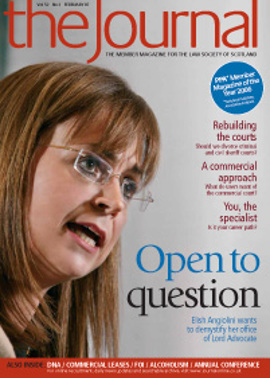Incapable of dismissal?
An employer causes an employee’s illness and then dismisses her on grounds of capability. An open and shut unfair dismissal finding, you might think. However, this was the scenario played out in Royal Bank of Scotland v McAdie, unreported, UKEAT/0268/06/ZT, the decision in which makes interesting reading.
Mrs McAdie had been a customer services officer with NatWest since 1983 and continued working after the bank was acquired by the Royal Bank of Scotland. In her 20th year of service, she found herself temporarily transferred from Bromley to Swanley. She complained to her manager and found him “inappropriately authoritarian and unsympathetic” in his response. Unhappy about the transfer and the way her manager was dealing with her complaint, Mrs McAdie went off sick with symptoms subsequently diagnosed as work-related stress. She also pursued a grievance through various stages.
The treatment of Mrs McAdie’s complaints left something to be desired. Initial delays by the manager in dealing with her correspondence were compounded by delays in arranging a first stage hearing. In turn, this hearing was not felt to have fully addressed the issues. Mrs McAdie lodged an appeal which took place by way of “desktop review”. It was rejected on what the EAT described as the “erroneous” basis that the complaints had been fully investigated at first stage and no evidence of inappropriate behaviour had been found.
To ignore or not to ignore
After some months, the bank commenced its long-term sickness procedure, ultimately resulting in Mrs McAdie’s dismissal on grounds of ill health, after she had rejected the offer of a return to a different role in a location of her choice. Mrs McAdie had insisted the only suitable resolution would be for her to leave the bank with compensation.
An employment tribunal upheld her unfair dismissal claim, concluding that the bank was responsible for her ill health as a result of the manner in which it dealt with her grievance. However, the EAT overturned this decision having considered three previous cases: London Fire and Civil Defence Authority v Betty [1994] IRLR 384; Edwards v Governors of Hanson School [2001] IRLR 132; and Frewin v Consignia (unreported, EAT/0981/02).
In the first, Betty, the EAT appeared to say that a tribunal should ignore the fact an employer has been responsible for any incapacity resulting in dismissal when deciding whether the termination was reasonable. However, as respects Edwards and Frewin the EAT in the instant case felt that this overstated the position. In its view, there will be cases where, as a matter of common sense and fairness, the fact that the employer is in some sense responsible for an employee’s incapacity will be relevant to whether and when it is reasonable to dismiss for that incapacity: in other words the employer will be expected to “go the extra mile” in finding alternative employment for such an employee, or put up with longer periods of absence than might otherwise be considered reasonable.
Consideration of these decisions led the EAT in McAdie to conclude that while, on the one hand, the tribunal should not ignore the fact that the employer caused the ill health, on the other, the fact that it did so, however culpably, cannot prevent it from effecting a fair dismissal.
Other potential claims
Applying these principles, the EAT felt the decision to dismiss was within the range of reasonable responses. The medical evidence was unequivocal that Mrs McAdie was unfit for work. She herself agreed with this and wanted her employment to terminate (albeit with compensation). As there was nothing more the bank could have done to secure Mrs McAdie’s employment, the EAT held there was no alternative to dismissal.
This decision will provide some comfort to respondent clients faced with the long-term sickness of an employee. However, it must be remembered that staying on the right side of the unfair dismissal provisions in the Employment Rights Act 1996 does not mean an employer is home and dry.
Mrs McAdie’s normal day-to-day activities were not felt to have been sufficiently adversely affected to bring her within the Disability Discrimination Act 1995, but this possibility should always be at the forefront of an employer’s thoughts, along with the prospect of a personal injury claim. Where bullying or harassment is alleged to have caused the illness, there is potential for a claim under the various pieces of equality legislation, with the likelihood of an injury to feelings claim included. Alternatively, the Protection from Harassment Act 1997 could be used by an individual following the recent cases of Majrowski v Guy’s and St Thomas’ NHS Trust [2006] UKHL 34 and Green v Deutsche Bank Group Services [2006] EWHC 1898.
When advising clients, bear in mind that prevention is always better than cure. Effective management at the outset in this case could have prevented both the tribunal proceedings and, more importantly, Mrs McAdie’s ill health.
Jane Fraser, Head of Employment, Pensions and Benefits, Maclay Murray & Spens
In this issue
- Routes to qualification: the Italian picture
- Speaking of change
- Disabled from suing?
- Hearing and answering
- Court afresh
- Clean sheet at the Commercial Court
- Making a specialism pay
- LCN DNA - devil in the detail
- To buy or not to buy?
- Just a winter warmer?
- Views from the new boy
- Working out time
- A claim in trust
- Incapable of dismissal?
- Chasing debts made simple?
- Scottish Solicitors' Discipline Tribunal
- Website reviews
- Book reviews
- FOISA goes to court
- On the wrong track?






